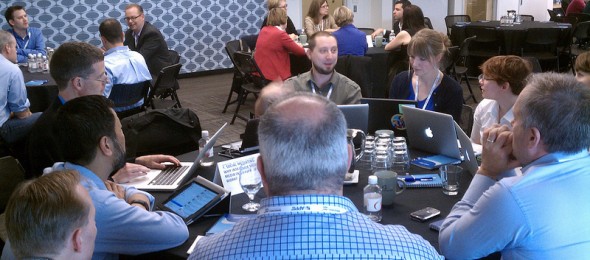Hamline University School of Law Professor Sharon Press has published Mediator Ethical Breaches: Implications for Public Policy, Penn State Yearbook on Arbitration and Mediation, Vol. 6, p. 107 (2014). In her article, Professor Press discusses the public policy goals behind court-connected mediation. She also examines the effect that grievances filed against court-connected mediators in the State of Florida over the course of a decade had on those goals and offers suggestions for addressing ethical breaches.
Here is the abstract:
Court-connected mediation, which includes both court mandated and court encouraged mediation, has become a well-established part of the judicial system in the United States. There are many public policy implications of this phenomenon. These include the underlying goals of the development of court-connection mediation and the responsibility to the public once a court-connected mediation program is established to ensure that the public has access to quality providers of mediation services. Once a court-connected mediation program has established qualifications and ethical standards for mediators, there is a public policy obligation for there also to be a mechanism to educate, reprimand or remove individuals from the list of qualified mediators if they have deviated from the standard expected of them. In this article, I will explore the public policy implications of mediator ethical breaches using the Florida state court-connected mediation experience as a prototype. Specifically, I will attempt to answer the following questions: What are appropriate goals for a grievance process from a public policy viewpoint? Should a grievance process include informal as well as formal means of reviewing grievances? How should a formal hearing process be designed to meet the public policy goals for establishing court-connected mediation programs as well as the interests of the litigants and the mediators?
In Part I, I will briefly explore the underlying public policy goals for the development of court-connected mediation both nationally and Florida in particular. In Part II, I explore the premise that a court is responsible for identifying “qualified neutrals” and for providing both a standard of conduct and grievance system if it is mandating or encouraging parties to use a mediation process as an alternative to trial. In Part III, I will use the Florida state court mediation program’s experience from April 2000 through December 2009 to examine the ethical breaches by mediators and their impact on the public policy goals underpinning the acceptance of court-connected mediation. In this section, I will also explore the concerns of complainants by examining the types of grievances filed and the outcomes sought in order to make the argument that a rehabilitative (rather than retributive) grievance process will best serve the public. Finally, I conclude with some recommendations to better meet the initial public policy goals for court-connected mediation and to better serve the public interest.
This and other scholarly publications authored by Professor Press may be downloaded without charge from the Social Science Research Network.
Photo credit: nealstimler / Foter / Creative Commons Attribution 2.0 Generic (CC BY 2.0)














